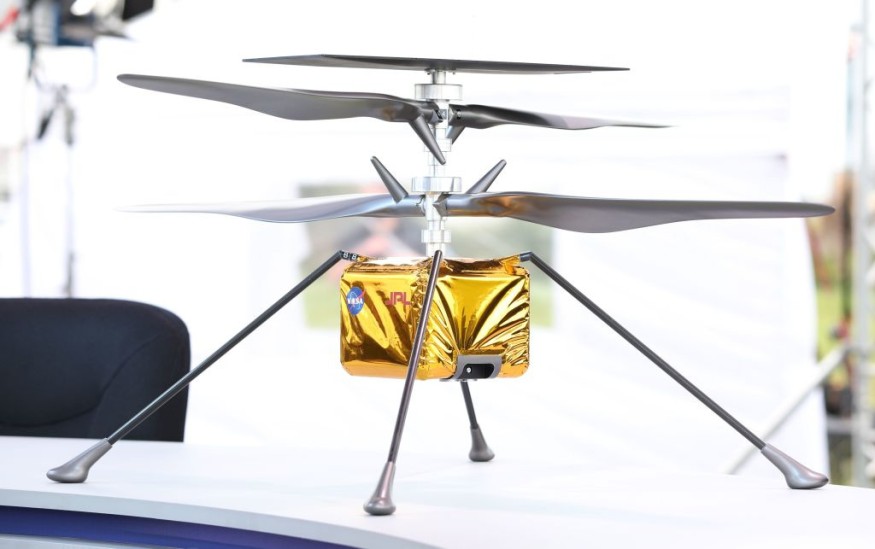After exceeding all expectations, the National Aeronautical Space Administration (NASA) successfully landed its Mars helicopter, Ingenuity, on the bottom of Mars' Jezero Crater.
NASA's Jet Propulsion Laboratory in California triumphantly declared on Twitter last Feb. 26 that Ingenuity Mars helicopter nailed its flight 20.
The 20th flight of the Mars helicopter lasted 130.3 seconds and reached a total distance of 391 meters (1,283 ft). For a second, its average speed was 9.8 mph.
Flight 20 was a success! ✅ In its 130.3 seconds of flight, the #MarsHelicopter covered 391 meters at a speed of 4.4 meters per second, bringing it closer to @NASAPersevere's landing location. pic.twitter.com/93pnuIuXaB
— NASA JPL (@NASAJPL) February 26, 2022
NASA Ingenuity Mars Helicopter Continues to Break Limit As It Finishes 20th Flight
Its most recent achievement demonstrates that the chopper has already surpassed its initial estimated number of flights.
According to Space.com, NASA's Mars helicopter has successfully completed Flight 20, according to the Jet Propulsion Laboratory of the United States space agency.
The Ingenuity Mars helicopter was only scheduled to fly five times on the Red Planet at first. Still, it was given an extension grant, allowing it to fly more than a dozen times, and it is currently on its 20th flight.
It comes as the Mars helicopter has performed admirably on its first sorties, earning an extension to operate on the rugged terrain of the Red Planet.
The Ingenuity chopper is investigating the surface of Mars with NASA's Perseverance rover to assist humanity to better understand the planet before its impending human landing mission.
According to a recent article from ScreenRant, the Mars helicopter has just completed its 19th flight, beating the odds on Mars.

ALSO READ : NASA Astronaut John Glenn Orbits Earth 60 Years Ago Today: Here's How He Survived This Bumpy Journey
Business Insider said NASA's Ingenuity team anticipated the helicopter to survive a month, or five trips.
NASA Ingenuity team lead Teddy Tzanetos, any flight beyond the fifth may be the last, and it wouldn't surprise them if components failed.
According to a UPI report, he will view the inevitable failure as a "great finding" and a "data point" for NASA's understanding of extraterrestrial flight.
In reality, the Mars helicopter just encountered a dust storm in the planet's rocky and sandy landscape.
After the Mars dust storm, the Ingenuity helicopter's cameras became clogged with dust, blurring its optics. NASA came up with a software method to mask off the grainy sections of the photos.
Furthermore, the helicopter's blades were clogged with dust, which was cleansed by conducting a "servo wiggle."
About Ingenuity Helicopter
According to NASA's Mars Exploration Program website, Ingenuity is a technology demonstration to test the first powered flight on Mars. Due to Ingenuity's attachment to Perseverance's belly, it followed the Administration's newest Mars rover, Perseverance, on its mission to Mars on Jul. 30, 2020.
Both the helicopter and the rover made it to Mars' Jezero Crater on Feb. 18, 2021, with the helicopter demonstrating that powered flight on Mars is possible, while Perseverance continues to explore the Red Planet in search of ancient life and collecting Martian rock and soil for possible return to Earth.
As part of NASA's technological demonstration, Ingenuity flew for the first time on Apr. 19, 2021. A separate NASA Mars Exploration Program page has been converted to its operations demo phase following its sixth flight to examine how aerial scouting and other activities may help future exploration of Mars and other worlds.
RELATED ARTICLE : NASA Mars Ingenuity Helicopter Successfully Completes 19th Flight After Series of Delays
Check out more news and information on Space in Science Times.












